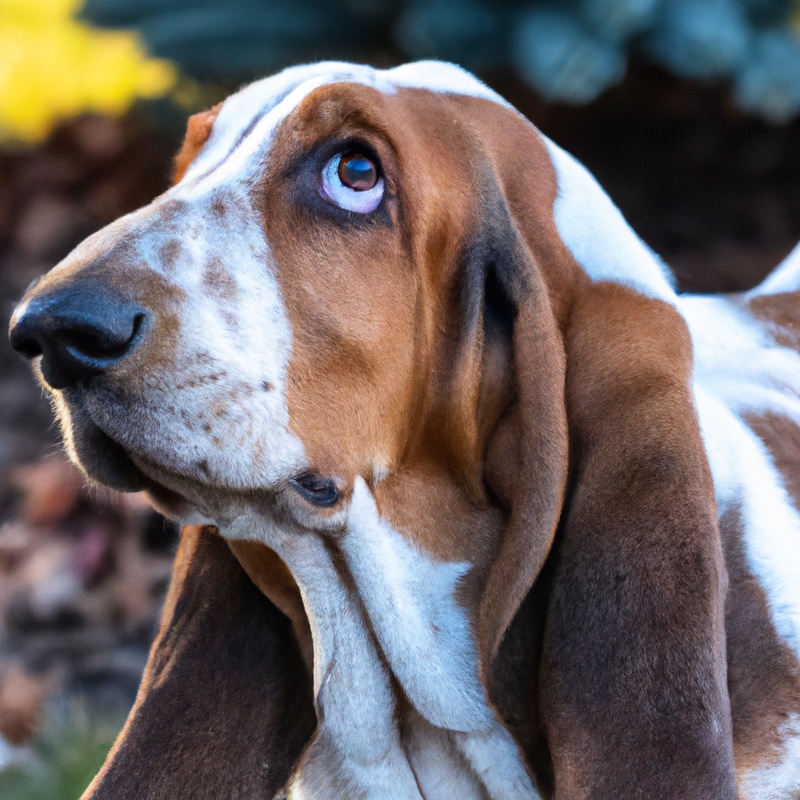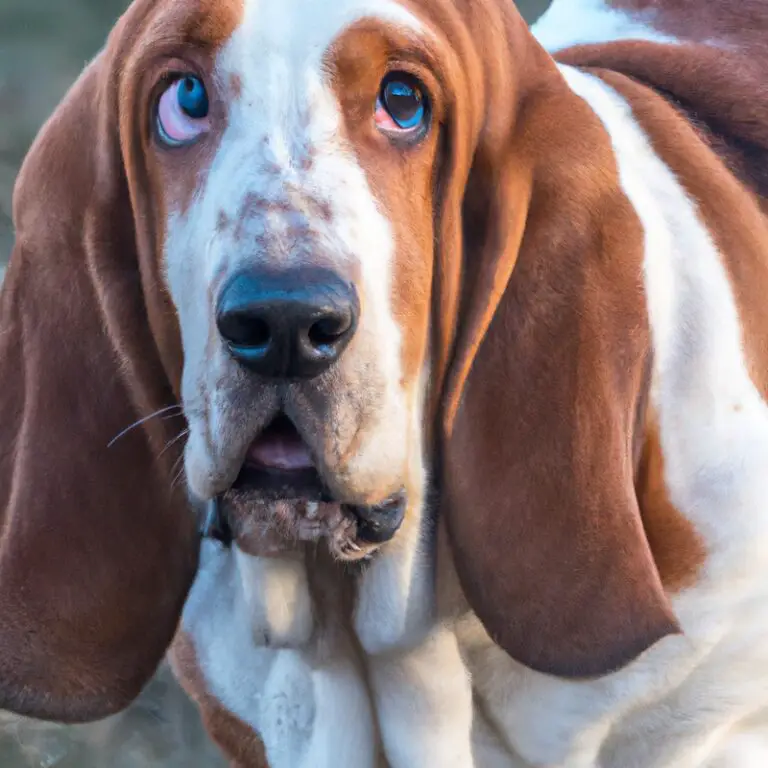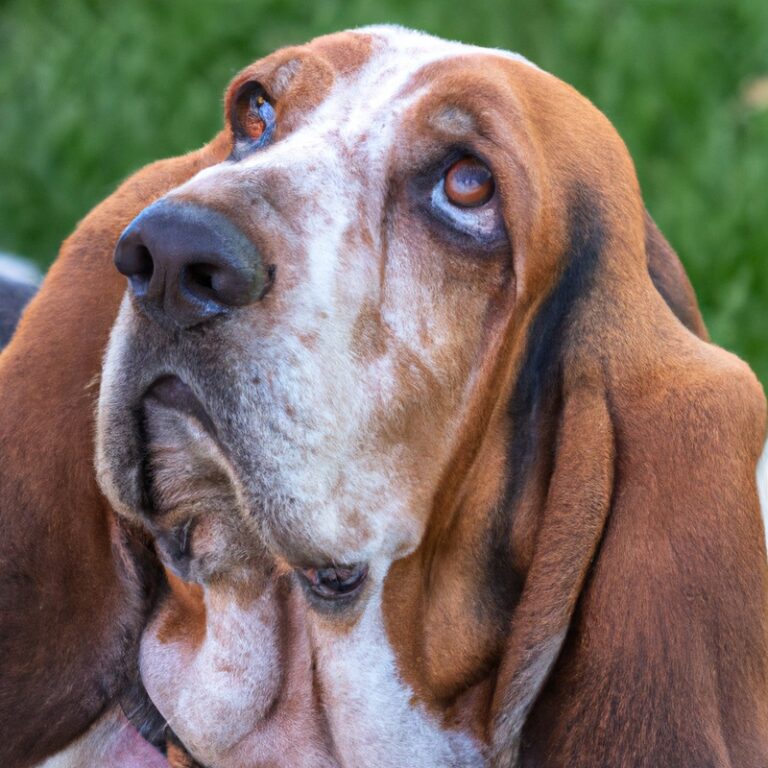How Do Basset Hounds React To Being Left Alone For An Extended Deep-Sea Exploration?
Key Takeaways:
- Basset Hounds may experience separation anxiety when left alone for an extended period of time.
- Long periods of isolation can lead to behavioral issues in Basset Hounds, such as excessive barking or destructive behavior.
- Providing mental stimulation, exercise, and a comfortable environment can help alleviate the negative effects of prolonged alone time for Basset Hounds.
- It is important to gradually introduce and acclimate Basset Hounds to being alone for extended periods to minimize distress.
Have you ever wondered how your loyal Basset Hound would react if you had to leave them alone for an extended deep-sea exploration? Well, you’re not alone in pondering this question.
As an expert in canine behavior, I’ve delved into the fascinating world of Basset Hounds, their pack mentality, and their unique characteristics.
In this blog, I’ll guide you through the signs of distress in these lovable dogs and share effective strategies to cope with their separation anxiety. Whether you’re planning an underwater adventure or simply need to leave your Basset Hound alone, I’ve got you covered with practical tips and insights.
So let’s dive in and discover how to ensure a happy and secure experience for your furry friend.
| Behavior | Reaction |
|---|---|
| Barking | Most likely to be minimal or non-existent due to the absence of external stimuli |
| Anxiety | May experience mild to moderate anxiety, especially during the initial stages |
| Destructiveness | Unlikely to exhibit destructive behavior since there are limited objects to interact with |
| Exploration | May curiously inspect their surroundings but limited by the confinement of the deep-sea vehicle |
| Restlessness | Possibly restless due to the lack of physical exercise and confinement in a small space |
| Sleep | May adapt their sleep patterns to match the lighting conditions inside the deep-sea vehicle |
| Emotional Distress | Possible emotional distress due to separation from their owners and unfamiliar environment |
| Adaptability | Some Basset Hounds may adjust well to the deep-sea environment, while others may struggle |
Understanding Basset Hounds’ Behavior
Basset Hounds’ pack mentality
Basset Hounds have a strong pack mentality.
They are social animals that thrive on companionship and being part of a group.
This stems from their history as scent hounds, where they would work together in packs to track and hunt game.
Being left alone for extended periods can be stressful for them, as they prefer to be with their human or canine family members.
It’s important to address their pack mentality when considering their well-being and ensuring their happiness and contentment.

Characteristics of Basset Hounds
Basset Hounds have distinct characteristics that make them stand out. They are known for their long droopy ears and soulful eyes.
These dogs have a laid-back and friendly temperament, making them great family pets.
Bassets have a strong sense of smell and love to follow scents, which is why they are often used as tracking dogs. They are also known for being stubborn and requiring patient training.
Bassets are generally calm and enjoy lounging around, but they still require regular exercise to stay healthy.
Separation anxiety in Basset Hounds
Separation anxiety is a common issue among Basset Hounds. They are pack animals and thrive on human company.
When left alone, they may experience distress and exhibit signs like excessive barking, destructive behavior, and escape attempts.
To help alleviate separation anxiety, gradual desensitization, creating a safe environment, and providing mental stimulation and exercise are key. Interactive toys, calming music, and pet sitters or doggy daycare can also be effective coping mechanisms.
Training techniques involving positive reinforcement and seeking professional help when needed can aid in teaching Basset Hounds to be more independent.
Preparing Basset Hounds for Extended Alone Time
Gradual desensitization
Gradual desensitization is a key method to help Basset Hounds cope with being left alone for extended periods.
It involves slowly exposing them to alone time, starting with short durations and gradually increasing.
For example, you could start by leaving them alone for a few minutes and gradually work your way up to longer durations.
This process helps them become more comfortable and reduces their anxiety.
Additionally, providing them with interactive toys, a safe and comfortable environment, and mental stimulation can further support their adjustment to being alone.
Creating a safe and comfortable environment
Creating a safe and comfortable environment is key when leaving your Basset Hound alone for an extended period.
Here are some tips:
- Provide a designated space that is secure and free of hazards.
- Make sure there are no potential escape routes or areas where your dog could get stuck.
- Set up a cozy crate or bed for your Basset Hound to feel secure and relaxed.
- Leave plenty of fresh water and some engaging toys to keep them occupied.
- Consider using calming scents or a pheromone diffuser to create a soothing atmosphere.

Mental stimulation and physical exercise
Mental stimulation and physical exercise are essential for keeping your Basset Hound happy and content when left alone for extended periods. Engage their minds with interactive toys, puzzle feeders, or treat dispensers.
Provide physical exercise through regular walks, playtime, and even training sessions.
Incorporate activities that tap into their natural instincts, such as scent games or searching for hidden treats. A tired and mentally stimulated Basset Hound is more likely to relax and enjoy their alone time.

Signs of Distress in Basset Hounds
Excessive barking or howling
Excessive barking or howling is a common sign of distress in Basset Hounds when they are left alone for extended periods. It’s their way of expressing their anxiety and trying to seek attention.
Basset Hounds are known to be vocal dogs, but excessive barking or howling that persists for long periods may indicate their discomfort with being alone.
It’s important to address this behavior by providing mental stimulation, creating a safe environment, and gradually desensitizing them to being alone. Seeking professional help may also be beneficial in managing and training your Basset Hound to be more comfortable when left alone.
Destructive behavior
Destructive behavior: Basset Hounds may exhibit destructive behavior when left alone for extended periods.
They may chew on furniture, shoes, or anything within reach.
This behavior often stems from anxiety and boredom.
To prevent this, provide your Basset Hound with plenty of mental stimulation and physical exercise.
Interactive toys and puzzles can help keep them occupied.
Creating a safe and comfortable environment with their favorite toys and bedding can also help minimize destructive behavior.
Seek professional help if needed.
Escape attempts
Basset Hounds can exhibit escape attempts when left alone for extended periods.
They may try to find a way out of their confinement, such as digging under fences or squeezing through small openings.
This behavior is their way of trying to reunite with their pack (you!).
To prevent this, make sure your Basset Hound is in a secure and escape-proof environment.
Regularly inspect fences and gates for any potential escape routes.
If necessary, use crates or baby gates to limit access to certain areas and provide plenty of mental stimulation and exercise to keep them occupied.
Coping Mechanisms for Basset Hounds
Interactive toys and puzzles
Interactive toys and puzzles can be excellent tools for keeping your Basset Hound mentally stimulated and entertained while you’re away.
These toys are designed to challenge your dog’s problem-solving skills and provide them with a sense of accomplishment.
Consider options like treat-dispensing toys or puzzle toys that require your Basset Hound to figure out how to access the treats or toys hidden inside.
These interactive toys can help alleviate boredom and reduce anxiety by providing a fun and engaging activity for your dog to enjoy while you’re gone.
Background noise or calming music
Playing background noise or calming music can help Basset Hounds feel more relaxed and comfortable when left alone for an extended period. The soothing sounds provide a sense of company and can drown out any external noises that might trigger anxiety.
Consider playing classical music, white noise, or ambient sounds specifically designed for dogs.
Experiment with different options to find what works best for your Basset Hound’s individual preferences. Remember, a peaceful environment can greatly help alleviate separation anxiety.
Using a pet sitter or doggy daycare
If you’re planning on leaving your Basset Hound alone for an extended period of time, using a pet sitter or doggy daycare can be beneficial. A pet sitter can visit your home, provide companionship, and ensure your dog’s needs are met.
Doggy daycare allows your Basset Hound to interact with other dogs and receive supervision in a safe environment.
It’s important to choose a reputable pet sitter or daycare facility that understands your dog’s specific needs and can provide the care and attention they require.
Training Basset Hounds to Be Alone
Gradual departures and returns
Gradual departures and returns are key in training Basset Hounds to be alone. Start by leaving for short periods of time, gradually increasing the duration.
This helps them get used to your absence and builds their confidence.
When you return, greet them calmly and avoid making a big fuss. This teaches them that your departures and returns are normal and nothing to be anxious about.
Remember to provide plenty of mental stimulation and exercise before leaving to keep them occupied and tired.
Positive reinforcement and rewards
Positive reinforcement and rewards are essential when training Basset Hounds to be alone.
I find that using treats, praise, and playtime as rewards can motivate them to feel more comfortable and confident.
For example, I may give my Basset Hound a treat when I leave the house and another when I return, reinforcing positive associations with being alone.
It’s important to be consistent and patient, gradually increasing the duration of their alone time while providing rewards.
This approach can help build their independence and alleviate separation anxiety.
Seeking professional help, if needed
If you find that your Basset Hound is struggling with being alone for extended periods, it may be beneficial to seek professional help.
A professional dog trainer or a veterinarian who specializes in behavioral issues can provide guidance and support.
They can assess your dog’s specific situation and develop a customized training plan to address separation anxiety.
Professional assistance can be valuable in helping your Basset Hound feel more comfortable and secure when left alone.
Remember, it’s okay to ask for help when needed!
Seeking Assistance for Extended Periods of Time
Professional dog boarding services
Professional dog boarding services offer a safe and comfortable environment for your Basset Hound while you’re away.
They provide round-the-clock care, supervised playtime, and regular feeding schedules.
Many boarding facilities also offer additional services like grooming and training.
Leave your furry friend in the hands of experienced and knowledgeable staff who understand the specific needs of Basset Hounds.
This way, you can have peace of mind knowing that your beloved pet is being well taken care of in your absence.
In-home pet sitting
In-home pet sitting is a great option for keeping your Basset Hound comfortable while you’re away.
A professional pet sitter can come to your home to provide companionship, exercise, and care for your furry friend.
They can stick to your Basset’s usual routine and ensure they feel safe and loved in their own environment.
This can help alleviate separation anxiety and keep your Basset Hound happy during extended periods of alone time.
Just make sure to find a trusted and experienced pet sitter who understands the needs of Basset Hounds.
Asking help from trusted friends or family
Asking for help from trusted friends or family can be a great solution when you need assistance with your Basset Hound during extended periods of time.
They can provide companionship and care for your furry friend while you’re away.
It’s important to communicate your dog’s needs and routines to ensure a smooth transition.
Additionally, providing clear instructions and conveying your trust in their care will give you peace of mind.
Remember to express your gratitude and offer to reciprocate the favor in the future.
Final Verdict
Basset Hounds are known for their pack mentality and can experience separation anxiety when left alone for extended periods.
To prepare them for alone time, gradual desensitization, creating a comfortable environment, and providing mental stimulation and exercise are crucial.
Signs of distress in Basset Hounds may include excessive barking, destructive behavior, and escape attempts.
Coping mechanisms such as interactive toys, calming music, and pet sitters can help alleviate their anxiety.
Training, using positive reinforcement, and seeking professional help if needed are essential for teaching Basset Hounds to be alone.
When extended periods of alone time are unavoidable, professional dog boarding or in-home pet sitting services can be sought, or trusted friends and family can be asked for assistance.
By understanding their behavior and providing the necessary support, Basset Hounds can adapt to being alone and stay happy and calm.







